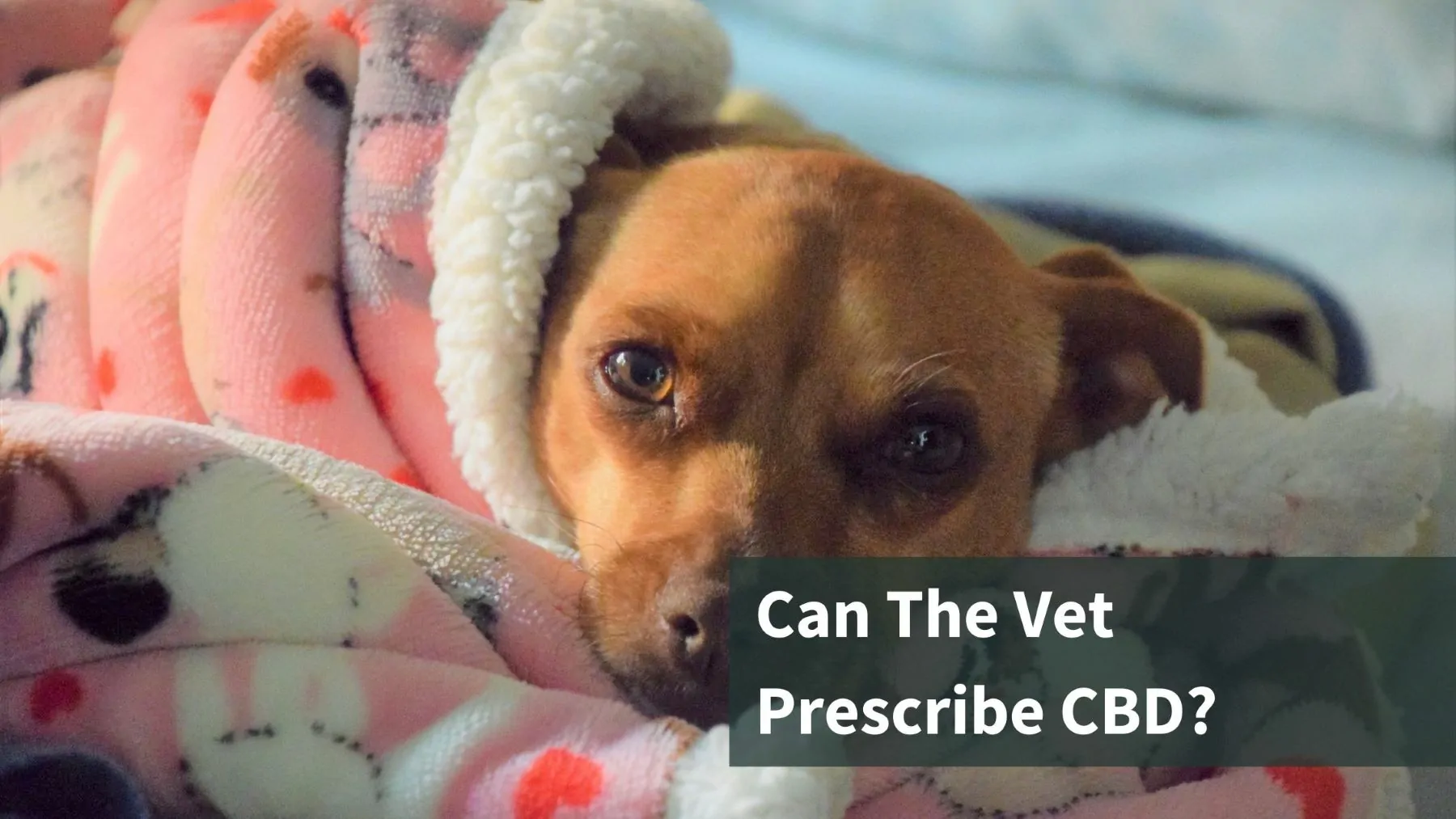No products in the cart.
The Growing Trend of Vets Prescribing CBD for Pets

Key Takeaways
- CBD is an all-natural alternative that you may want to consider if you don’t want to put your pet on harsh pharmaceuticals.
- On your next visit, talk to your vet about CBD and get their opinion about whether or not they think CBD may be able to help your pet.
- Be sure to give your pet only high-quality CBD products. Look for testing documents to back up your product’s purity.
The shift towards integrating CBD and hemp-based products into a holistic veterinary practice is happening all over the country. In this blog, we’ll cover the reasons more vets are recommending CBD, the conditions that CBD may be able to help with, and what you should keep in mind before you give your pet CBD.
Understanding CBD and Its Benefits
CBD, short for cannabidiol, is a non-psychoactive compound found in cannabis and hemp plants. Unlike THC, which can cause THC toxicity in your four-legged friend, CBD interacts with your pet’s endocannabinoid system (ECS) to improve their overall wellness. In some cases, CBD may even manage some of the symptoms of some ailments.
CBD’s Health Benefits For Pets
In animals, we believe that CBD can help with:
- Pain Management: We believe that CBD can help reduce inflammation in our animals. This, in turn, helps our pets manage their pain better. A study by Cornell University College of Veterinary Medicine found that dogs suffering from osteoarthritis showed fewer signs of being in pain after using CBD.1
- Managing Anxiety: Many pets experience separation anxiety (and it only got worse when we were all home during COVID.) Many dog owners especially use CBD to help their pups relax while they’re crated or away at work.
- Seizure Management: While the FDA hasn’t officially approved CBD for pet medications, more than a few studies have found that CBD can help reduce the intensity and frequency of seizures in dogs.2, 3
- Better Appetite: Pets can lose their appetite for any number of reasons, including stress, pain, and illness. It’s heartbreaking to see our pets not eat. CBD can help with those root causes and help our pets regain their appetite.
Why Vets Are Prescribing CBD
Even though some veterinarians dig their heels on cannabis-derived approaches to medicine, more and more vets are turning to CBD for several reasons.
- Holistic Approach: Many pet owners are looking and asking for natural alternatives to traditional pharmaceuticals. Traditional medications can have some severe side effects, while CBD, as far as we know, only has mild side effects.
- Anecdotal Evidence: Many pet owners have used CBD and seen significant improvement in their pets’ conditions. So many, in fact, that we know have written testimonials about how successfully CBD oil is improving our pets’ quality of life. The results are hard to ignore.
- Research: Current studies on CBD’s benefits for pets are promising. So much so that even more conservative vets are beginning to recommend it for their patients.
- Regulatory Changes: CBD rules and regulations are always in flux. But as restrictions relax, more Vets are beginning to feel comfortable prescribing CBD.
If Your Specific Vet Isn’t Prescribing CBD…
If you’re specific veterinarian won’t prescribe CBD, even if you’ve asked, ask them about their hesitation. Veterinarians are doctors and they may have seen some studies that highlight certain risks in prescribing CBD. Or they may not be up to date on the current research.
Regardless of their answer, your pet’s care is ultimately up to you. If you do decide to start your pet on a CBD regimen, there are some things you should consider first.
What Pet Owners Should Consider
If you’re considering CBD for your pet, here are a few things to keep in mind:
- Choose Quality Products: When you’re looking for CBD for your pets, ask yourself the following questions.
- Is this a product that I would consume? Are there ingredients inside that I wouldn’t consume?
- Does this product have third-party potency testing documents? You’ll want to confirm that the product is high in CBD and low levels of THC (<0.3% on a dry-weighted basis.)
- Where is this product from? Always choose products that contain US-grown hemp.
- Read Product Reviews: A company can say whatever it wants about its product, but that doesn’t always make it true. If available, be sure to check out product reviews and read what other pet owners are saying about it.
- Consult With Your Veterinarian: Always ask your veterinarian before starting your pet on CBD. They can help you determine the appropriate dosage for your pet’s situation.
The Wrap Up
The trend of vets prescribing CBD for pets is a welcome shift towards more holistic approaches to pet care. This writer is confident that as its use becomes more widespread, it will outpace traditional pharmaceuticals.
If you’re interested in learning more about CBD oil for dogs, be sure to see Sunset Lake’s 600mg Full Spectrum Pet CBD Oil. Or feel free to get in touch using our contact page, and we’ll try our best to help.
Sources:
- Kogan, L., Hellyer, P., & Downing, R. (2020). The use of cannabidiol-rich hemp oil extract to treat canine osteoarthritis-related pain: a pilot study. AHVMA J, 58, 1-10.
- Rozental, Aaron J et al. “The efficacy and safety of cannabidiol as adjunct treatment for drug-resistant idiopathic epilepsy in 51 dogs: A double-blinded crossover study.” Journal of Veterinary Internal Medicine vol. 37,6 (2023): 2291-2300. doi:10.1111/jvim.16912
- Zavala-Tecuapetla, Cecilia et al. “Advances and Challenges of Cannabidiol as an Anti-Seizure Strategy: Preclinical Evidence.” International journal of molecular sciences vol. 23,24 16181. 19 Dec. 2022, doi:10.3390/ijms232416181
This blog was originally published on June 11, 2024 and has been updated by the original author on September 23, 2024
